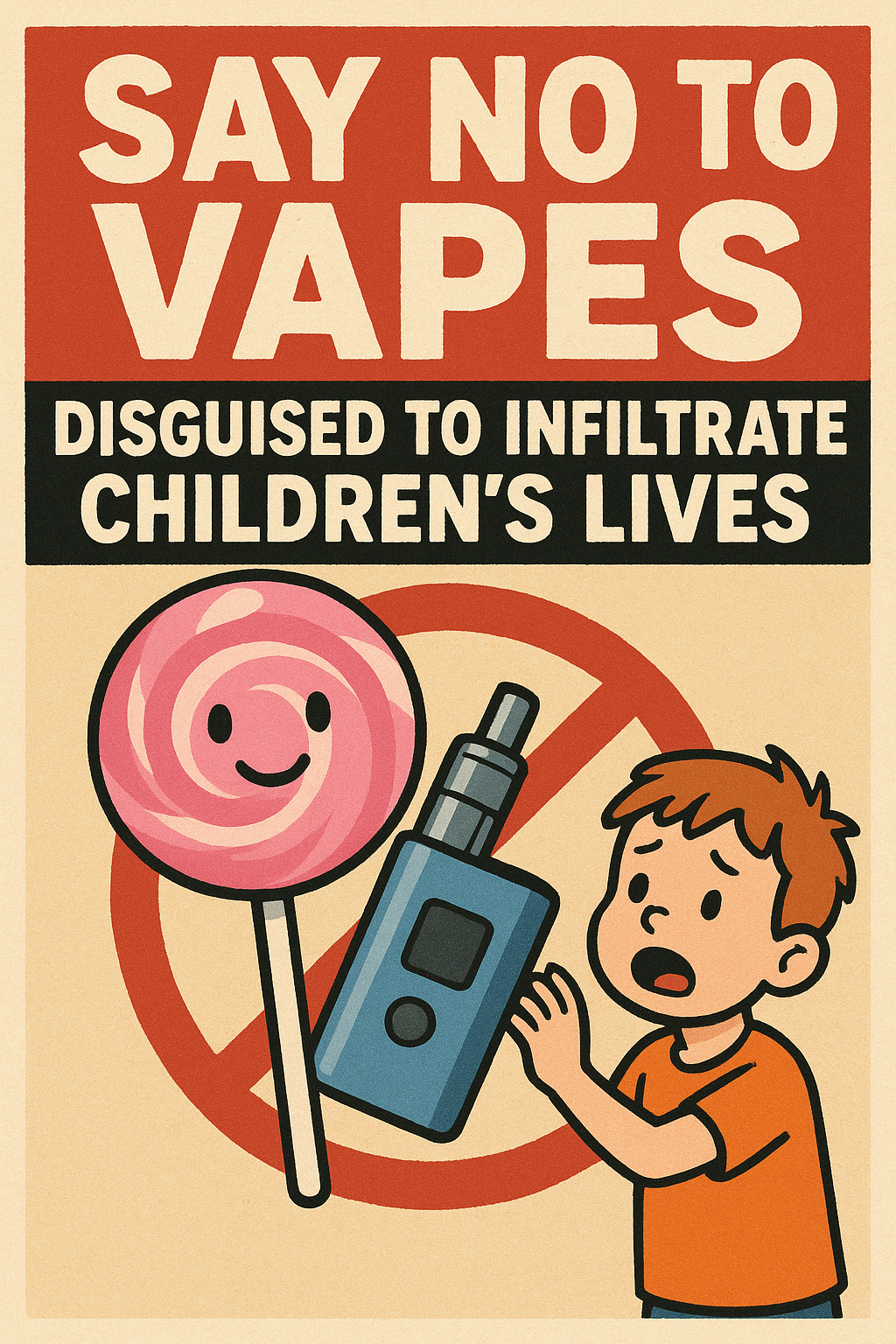
ARE YOU OF LEGAL VAPE AGE?
Please confirm that you are of legal age to purchase vaping products to access our site.

Please confirm that you are of legal age to purchase vaping products to access our site.
Some items are no longer available. Your cart has been updated.
This discount code cannot be used in conjunction with other promotional or discounted offer.

In recent years, Vapes have increasingly attracted minors due to their wide range of flavors and novel designs. Social and cultural influences have further contributed to the rising prevalence of e-cigarette use among adolescents. According to the Administrative Measures for Vapes, minors must be discouraged from using such products, and the sale of Vapes to middle and primary school students is strictly prohibited. However, reports from municipal representatives indicate that the actual situation—both online and offline—remains troubling. In response, calls have been made to strengthen supervision and enforcement to protect minors from the risks of e-cigarette use.
A municipal representative noted that while mainstream e-commerce platforms display warnings such as “Green Net Initiative” and “Smoking is harmful to health” when searching for “Vapes,” alternative keywords such as “vaporized fruit,” “energy atomizer,” or “cloud smoke device” still reveal relevant products. On some second-hand trading platforms, searching terms like “vaporization” or “quit smoking” continues to yield disguised e-cigarette listings. These so-called “rebranded” products are easily accessible online, and minors are not excluded from purchasing them.
The representative also highlighted that, with stricter offline regulation, e-cigarette sales have increasingly shifted to online platforms. In some cases, brick-and-mortar retailers, upon realizing that a customer is underage, directly connect with them through social media to continue sales. Since Vapes are not classified as contraband and can be shipped through normal postal channels, this pathway has become a “mainstream” distribution method.
The representative emphasized that government authorities should implement more stringent protective measures. These include:
In reply, the Municipal Tobacco Monopoly Bureau outlined recent efforts based on joint directives issued by the Ministry of Public Security, State Tobacco Monopoly Administration, State Administration for Market Regulation, and the Ministry of Education. These directives include the Special Action Plan to Crack Down on Illegal E-Cigarette Sales to Minors and the “Guarding Growth” Action Plan to Protect Minors from Tobacco Harm.
Key measures implemented include:
Conducting city-wide inspections of e-cigarette retailers, distributing educational materials, and requiring shops to sign “No Sales to Minors” pledges.
Strengthening oversight of online e-cigarette sales and advertisements. To date, e-commerce platforms have removed 186,000 e-cigarette-related listings and shut down 15,300 online shops (including cigarettes, Vapes, and tea-based substitutes). Nearly 600 sensitive keywords (such as “smoke,” “e-cigarette,” “tea smoke”) have been added to monitoring systems.
Establishing a cooperative monitoring mechanism between the bureau and online platforms, enabling rapid removal of illegal listings once detected.
Ensuring compliance with the Law on the Protection of Minors, which prohibits the establishment of tobacco and alcohol retail outlets near schools and kindergartens. Since the law’s implementation, 899 e-cigarette retail licenses have been issued, with no violations found in school-adjacent areas.
Relevant departments have consistently intensified enforcement since Vapes came under regulatory oversight:
Tobacco authorities operate a 24/7 hotline (12313) to collect reports of illegal e-cigarette sales to minors, addressing violations such as unlicensed production, wholesale, and retail activities.
Market regulation authorities combat counterfeit products, false advertising, and unlicensed sales. They also monitor misleading promotional terms such as “vaporized fruit,” “energy stick,” or “quit-smoking device” that mask the true nature of Vapes. Special attention is paid to advertising near schools and online promotional activities.
E-commerce platforms are urged to take responsibility by blocking online sales of Vapes, closing illegal shops, removing harmful product listings, and expanding their keyword-detection systems to include variations such as pinyin spellings, homophones, and altered characters.
Despite the growing regulatory framework and enforcement efforts, Vapes continue to infiltrate the lives of minors through disguised sales tactics. This underlines the urgent need for continuous cooperation among tobacco authorities, market regulators, e-commerce platforms, schools, and families. Only through comprehensive prevention, strict enforcement, and targeted education can society effectively safeguard the healthy growth of minors and prevent the next generation from falling into the trap of nicotine addiction.

Comment